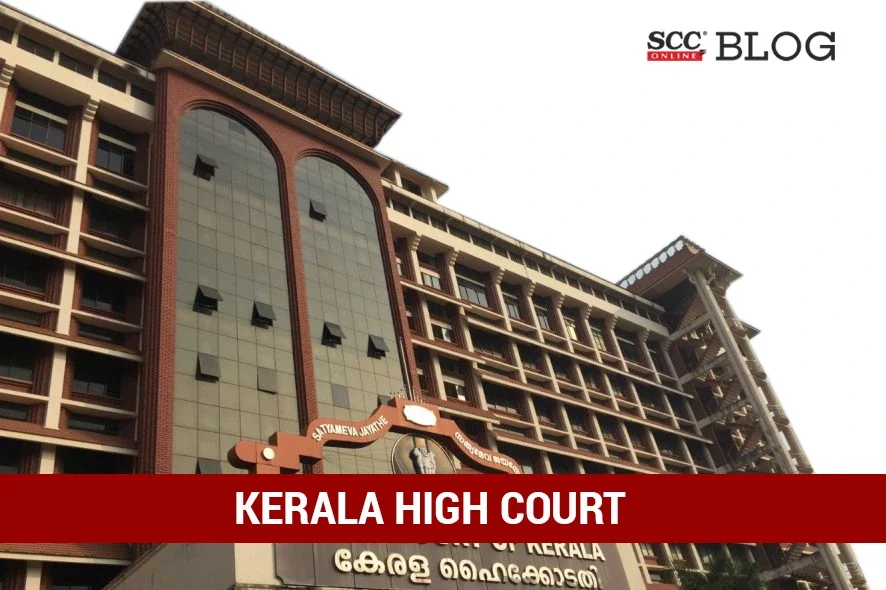Kerala High Court: In a matter which involved the question of ‘whether a person watching a porn video in his private time without exhibiting it to others amounts to an offence?’, involving offence punishable under Section 292 of Penal Code, 1860 (‘IPC’), P.V. Kunhikrishnan, J. quashed the criminal proceedings against the petitioner while holding that watching porn in private is not an offence as per IPC Section 292.
Background
The case of the prosecution was that the de facto complainant and his associates were on patrol duty on 11-07-2016 at 8:40 PM, the petitioner was seen standing on the roadside near Aluva palace, watching obscene videos on his mobile phone. Accordingly, he was arrested, and his mobile phone was seized, and the Judicial Magistrate First Class took cognizance of the matter. The petitioner contended that even if the allegations are accepted in their entirety, no offence was made out under Section 292 of IPC.
Court’s Analysis of Section 292 IPC
The Court perused IPC Section 292 and its ingredients and expressed that “To attract an offence under Section 292 IPC, there must be evidence to show that the petitioner sells, lets to hire, distributes, publicly exhibits or in any manner puts into circulation, or for purposes of sale, hire, distribution, public exhibition or circulation, makes, produces or has in his possession any obscene book, pamphlet, paper, drawing, painting, representation or figure or any other obscene object whatsoever”, while the prosecution case did not portray that the petitioner was watching obscene videos using a mobile phone which will attract youngsters. The Court noted that there was no allegation of petitioner publicly exhibiting the video, the police officer in his statement under Section 161 of CrPC stated that the petitioner was watching obscene videos looking down at his mobile phone.
The Court opined that watching obscene photo/video from a mobile phone in privacy is not by itself an offence under Section 292 of IPC. It further clarified that if the petitioner would have been trying to circulate or distribute or publicly exhibit any obscene photos or video, then only it could be an offence under IPC Section 292. Thus, the Court accepted the petitioner’s contention that even if the allegations were accepted in toto, no offence was made out against the petitioner under Section 292 of IPC. The Court cited Ramesh Krishnan v. State of Kerala, 1999 SCC OnLine Ker 280 and Abdul Rasheed v. State of Kerala, 2008 SCC OnLine Ker 107 wherein, the Court considered the scope of IPC Section 292. Therefore, the Court allowed the petition.
Court’s Remarks on Porn and Consensual Sex
The Court expressed that a Court of Law cannot declare that watching porn in private amounts to an offence because it is a person’s private choice. It was cautious that interference with the same would amount to intrusion of privacy for such person. The Court further explained that God designed sexuality as something for a man and a woman within a marriage, and that it’s not only lust but a matter of love and also for having children.
The Court took the opportunity to state that consensual sex between a male and a female who have attained the age of majority is not an offence. It further explained that “Pornography has been in practice for centuries. The new digital age has made it more accessible than ever before, and it is available even to children and adults at their fingertips. A court of law need not recognise consensual sex or watching of a porn video in privacy because these are within the domain of the will of society and the decision of legislature.” Therefore, the Court was restricted to its duty to find out whether the act amounts to an offence or not.
Court’s Reminder for Parents of Minor Children
Before parting with the instant matter, the Court took it as an opportunity to remind parents of minor children in the country that “Watching pornography may not be an offence. But if minor children start to watch porn videos, which are now accessible in all mobile phones, there will be far reaching consequences.” Finger pointing the innocent parents who give mobile phones to their minor children just to make them happy, the Court said that instead of delicious mom-made food or cake cutting ceremonies on birthdays, people are gifting mobile phones with internet access to the minor children. The Court specifically cautioned such parents of the danger behind it.
The Court suggested parents to let children watch informative news and videos from their parents’ mobile phones in their presence, and not to hand over the same to make children happy and meanwhile complete their daily routine works, thereby allowing unsupervised use of mobile phones by children. The Court pressed for children to play cricker, football or other games during leisure time, which is necessary for a healthy young generation who will become the “beacons of hope of our nation in the future”. It also said that “Instead of purchasing food from restaurants through ‘swiggy’ and ‘zomato’, let the children taste the delicious food made by their mother and let the children play at playgrounds at that time and come back home to the mesmerizing smell of mother’s food.” The Court eventually left it to the parents’ wisdom.
In its conclusion, the Court allowed the instant petition and quashed all the ongoing proceedings against the petitioner in the instant matter.
[Aneesh v. State of Kerala, 2023 SCC OnLine Ker 7900, Order dated 5-09-2023]
Judgment by: Justice P.V. Kunhikrishnan
Advocates who appeared in this case :
For Petitioner: Advocate Bobby Rapheal C., Advocate E.C. Poulose
For Respondents: Public Prosecutor Vipin Narayan







